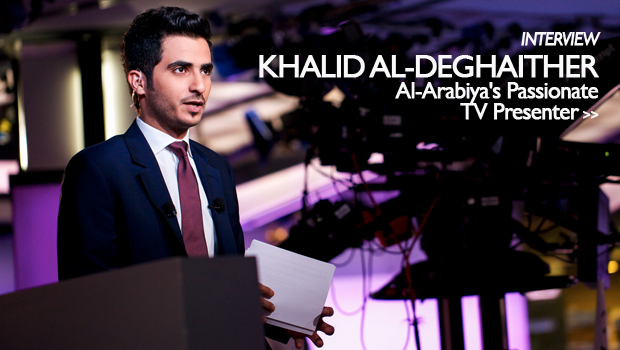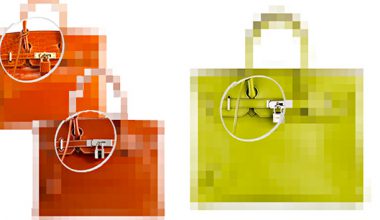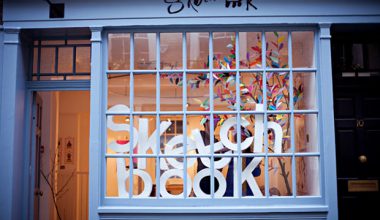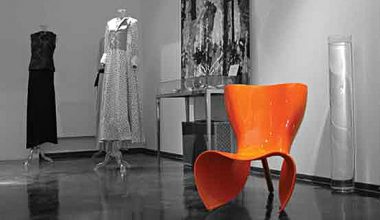
Khalid Al-Deghaither, one of the young sensations in the world of Arab broadcasting today, takes Sharifa Al Badi behind the scenes for an exclusive interview and talks about life, sports, presenting in Al-Arabiya and the world of media and communication today.
If you're familiar with the popular news channel Al-Arabiya then you've probably caught Khalid Fahad Al-Deghaither on TV presenting sports announcements and reports.
Al-Deghaither's journey did not begin in the world of media and broadcasting. Growing up, he dreamt of being a professional football player. He was obsessed with sports and had accumulated a couple of medals and trophies to his name. “If I had a time machine, I would go back in time and pursue my dream of becoming a professional football player.”
Nevertheless, Al-Deghaither has become fully immersed in his current job, one that he is very passionate about, and states that he will not be leaving his post any time soon, as he has yet to reach his personal goal in the world of media.
Al-Deghaither's father played a big role in his son's work ethic. The young TV presenter was always infatuated by his father, whom he says he looks up to. His father was not only a parent and a mentor, but also a friend and an idol.
“I encourage everyone to start working from a young age. Do it after school, or during the summer in your free time,” adding, “I wish people in the region would take summer vacations more seriously. Get a summer job or internship; it doesn't just add to your CV, it is self development.”
As important as education is, he noted that work experience is just as valuable, claiming that just because someone is studying, does not mean they can't work at the same time.
 The Early Years
The Early Years
In the summer of 1996, back when he was in high school, Al-Deghaither decided he wanted to work in his free time. He was the first Saudi to take on a job as a bagger in the popular Saudi chain supermarket Azizia Panda. “Some people wanted to give me money because they were proud and others were baffled that I, as a Saudi, was working there – they wanted to give me money because they thought I needed it. Either way, I always refused it.” The next two summers, Al-Deghaither continued his summer job while also hoping it would encourage others to follow suit.
The summer after that, Khalid started working in the main office to head various marketing operations, one of which was waking up at nearly 5 am everyday to purchase crops for all the supermarket chains in Riyadh. He recalls that he had to sleep early to wake up early, thereby missing many late night outings with his friends.
When Al-Deghaither enrolled in university, his classes were late in the afternoon so he had his mornings free. His father encouraged him to work part time in a world renowned French advertising agency, now known as Publicis Graphics.
Working hard and staying long hours, the agency eventually promoted him and also gave him monetary rewards just to motivate the young student and to keep him working. “I was busy; I was studying and working at the same time and, to be honest, I was taking work more seriously than school. Not to say that school and degrees are not important!”
The agency soon developed a new department, account planning, and appointed Al-Deghaither as its head, even though he had yet to complete his university degree. Eventually, he had to resign since he was going to move to the United Arab Emirates to change universities and explore new opportunities.
Believe it or not, the first time Al-Deghaither got offered a job in media broadcasting was in 2005 when he was still in university, however because he was still studying, he declined the offer and did not follow up.
Fate intervened again in 2007 when he met someone by chance who worked in the sports department of Al Arabiya. Seeing potential in Al-Deghaither, he offered him an internship opportunity, where he could get experience in writing and researching for the sports section in the channel's website.
After a couple of months of training, Al-Deghaither decided it was time to pursue a full time job, so left his post as a trainee. The news agency offered him a job as a broadcaster on screen. This was a turning point in the young man's life and an important landmark that began his journey in the world of broadcasting.
Al-Deghaither had never planned on going into TV presenting, but after testing the waters, he found his niche in sports broadcasting. “I was really into sports when I was a kid and used to watch all sports programs and shows in all the channels available back in the day. So at the end, I did get involved in sports, but from the media side.”
So what would he be doing if not for this? “You know when you're a little child you aspire to be like your dad? He's a successful business man, so probably something business related.”

The Present
Today, Al-Deghaither is a reporter, presenter, and writer, and does production at the same time for Al Arabiya; this includes report writing, sourcing images, editing text and making sure everything is concise and accurate. “Even if I am not presenting on the day, I still have to make sure all reports are edited, accurate and ready to go,” he added.
Patience is a not a virtue in his field, it is a necessity. News broadcasting has been rated as one of the most stressful jobs in the world; there is no room for mistakes. "You cannot miss anything important or crucial and you cannot repeat news. It always has to be current and updated, you can't fool the viewers," the sports presenter told us, affirming that one has to be in the know from the moment they wake up until the time they leave work – sometimes even until they go to sleep.
While it is no secret that everyone on TV needs a certain amount of attractiveness, it is not his polished exterior that brings in the viewers. “Being in front of the screen, one should be confident, charismatic and determined. And if you have passion and determination, you can enter any field and be successful at it.”
Outside the studio, Al-Deghaither is a sports fan (naturally), an athlete (he runs, plays football, and other sports), and a down to earth guy who likes the color blue. He likes to watch TV, despite the fact that he works all day in front of it and behind it. “If you are smart about it, watching television can be a highly rewarding, educational experience.”
Describing himself as a highly perceptive individual who's always aware of his surroundings, Al-Deghaither claimed that he can also be over analytical at times. He admitted to being moody at home – a nature which he said is never an option in the workplace. Despite that, he is a highly optimistic person who believes compassion and in the importance of helping others, which is why he likes to get involved in charities whenever he can.
 Education and Media
Education and Media
As for media in the region, Al-Deghaither believes it is growing in a healthy, steady manner and that over time more people from the GCC will take posts in international channels such as Al Arabiya or BBC News, meanwhile noting that the lack of Arab faces in international media positions is due to the shortage of interest in such jobs.
He went on to comment that educational institutions, including schools, do not focus on media and communication from an early stage. Therefore, growing up, there is not much exposure for students about media professions until very later on in life. “The dull thing about most schools is that they focus on you being a doctor or an engineer. That is what most families want as well.”
Regarding the current education system, he said “I wish schools would focus more on getting expert people who understand each child is unique; people that will foster these children's talents, and allow each child to grow in what they are good – with the support of their parents of course. Schools should focus on letting children specialize earlier on in life, whether it's art, or a certain sport, or a knack for directing.”
When it comes to social media and technology in general, he believes in the effectiveness of networks like Twitter and sites like YouTube that sometimes get more feedback (not only viewers) than regular TV channels. “Just 10 years ago we did not know there would be Twitter, iPhones, Skype, so imagine what's going to happen in the future.”
Breaking Social Norms
Social norms play a big role in the development of professions in the region. According to Al-Deghaither, “We, as a region, are a bit late and not rapidly progressive. Nevertheless, nowadays, it's better than it was 20 years ago. As GCC nationals, jobs like being a waiter or a cashier is becoming normal. Back when I was working as a cashier it was a BIG deal.”
The same social norms have probably been a result of governments' lenient attitudes as well. “I hate it when people say that this is a rich country so they don’t have to work hard,” said Al-Deghaither, believing that no matter how rich a country is, its government must be more involved in encouraging youth, regardless of their backgrounds, to work.
“I do not believe in unemployment,” he stated, then went on to explain that unemployment is simply a culture. It depends on how people look at it. Just because someone graduated from engineering school does not mean that they will land their dream engineering job right away. They need to work somewhere less attractive to them, gain experience, and achieve personal goals, until they find that dream job.
“People need to start embracing themselves and the idea that they may have to start from ground zero and to be patient and to progress slowly with sustainable hard work,” he remarked.
As for his thoughts on today's youth, he stated simply, “I assume life is getting harder and they will probably face more challenges, but on the bright side perspectives are changing.”
His advice for them? “Always look for other opportunities, have an open mind and be reasonable. Live in the moment, the now, and do not focus on the past.”
So what should we expect from this rising presenter? His own show, at the very least. The synergy between him and his work is undeniable; passionate about sports, persistent in his work, and patient during rough times when he sometimes has to work without any weekend breaks. If there's one thing I learned from talking to Khalid, it's that his passion knows no bounds.
Photography Omar Al Gurg for Khaleejesque
** This article was first published in Khaleejesque Magazine's Oct/Nov/Dec 2012 Issue "The People Issue".







